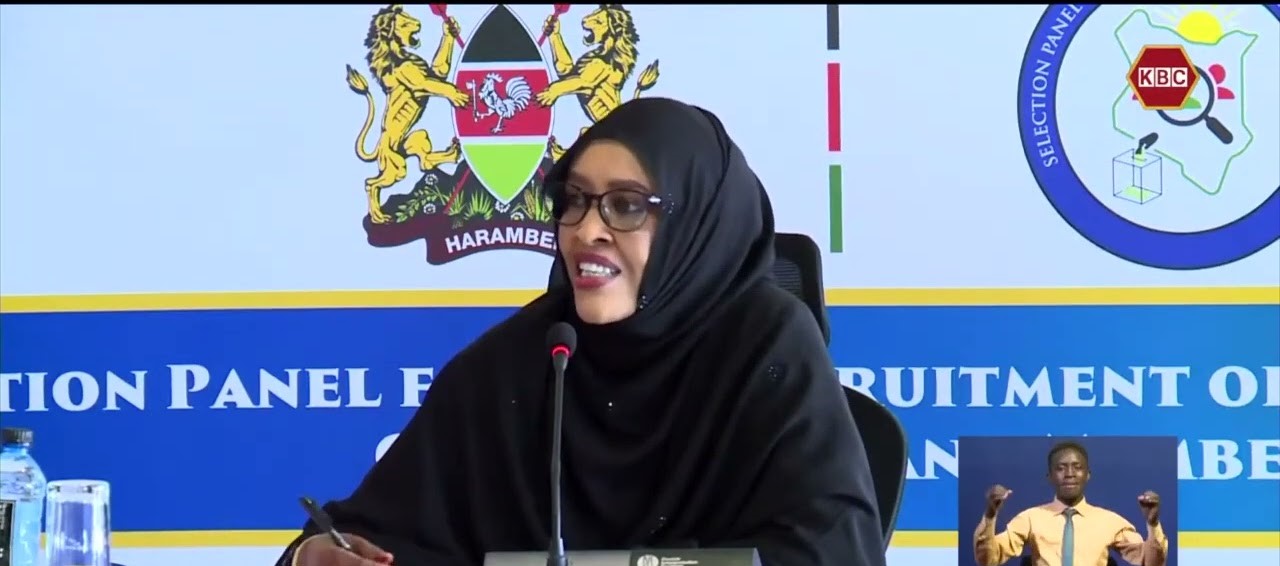IEBC interviews: Candidates pitch radical changes to restore public trust

With the interviews for new commissioners of the Independent Electoral and Boundaries Commission (IEBC) in their final stretch, candidates appearing before the selection panel have proposed sweeping changes to restore public confidence in the electoral process ahead of the 2027 General Election.
Fatuma Mohamed, who serves on the boards of the National Cohesion and Integration Commission (NCIC) and the Independent Policing Oversight Authority (IPOA), and Prof Francis Aduol, former Vice-Chancellor of the Technical University of Kenya, were among those interviewed on Thursday.
Others who appeared before the panel were Fahima Araphat Abdalla, Ezekiel Kibet Tanui, Fatima Abdalla Soud Sheikh, Erastus Ethekon, and Eliud Wanjao Ngige.
Esther Nanjala Wekesa was also scheduled for the day’s interviews but failed to turn up.
Prof Aduol pushed for the enforcement of a strict deadline for voter registration to allow ample time for a credible audit of the register.
“It is essential to have a cutoff date so the register can be properly audited. This ensures we establish exactly who is eligible to vote and where. If registration were allowed until the last minute, effective auditing would be impossible,” he said.
He also emphasised the need for consistent audits to clean up the register by removing deceased voters and duplicate entries.
To strengthen the accuracy of voter information, Aduol recommended the use of technology that would link registration data to precise locations using GPS.
Fatuma Mohamed focused her proposals on the role of the media in enhancing transparency.
She stated that she would actively collaborate with media houses and support the operation of parallel vote tallying centres in the next election cycle.
“You cannot stop the media from running parallel tallying centres, but it must be done openly and transparently to ensure accuracy. The media are key stakeholders in the electoral process; they cannot simply be dismissed. I would engage with them extensively throughout,” she told the panel.
Earlier in the week, other candidates also presented strong reform agendas.
On Tuesday, Arnold Mutwiri Njabani, an IEBC County Election Manager, advocated for bold steps to improve the public image of the commission.
He proposed a radical redesign of the IEBC’s headquarters at Anniversary Towers to boost visibility and reinforce openness.
“Independence must not only exist but be seen. If given the chance, I would install glass windows at Anniversary Towers so that even from Haile Selassie Avenue, Kenyans could see what we are doing. There is a perception that we ‘cook’ results—yet we do not,” Njabani said.
Collins Gordon Juma, the former CEO of the Nuclear Power and Energy Agency (NuPEA), proposed doing away with the national tallying centre entirely.
He called for a shift to technology-led transmission of results directly from the ward level, which he said would minimise delays and curb interference.
“We do not need a national tallying centre—developed countries do not use one. Why should we?” Juma posed.
The IEBC selection panel is expected to wrap up the interviews next week and submit a final report, paving the way for the appointment of new commissioners to steer Kenya’s electoral body through a pivotal period.
